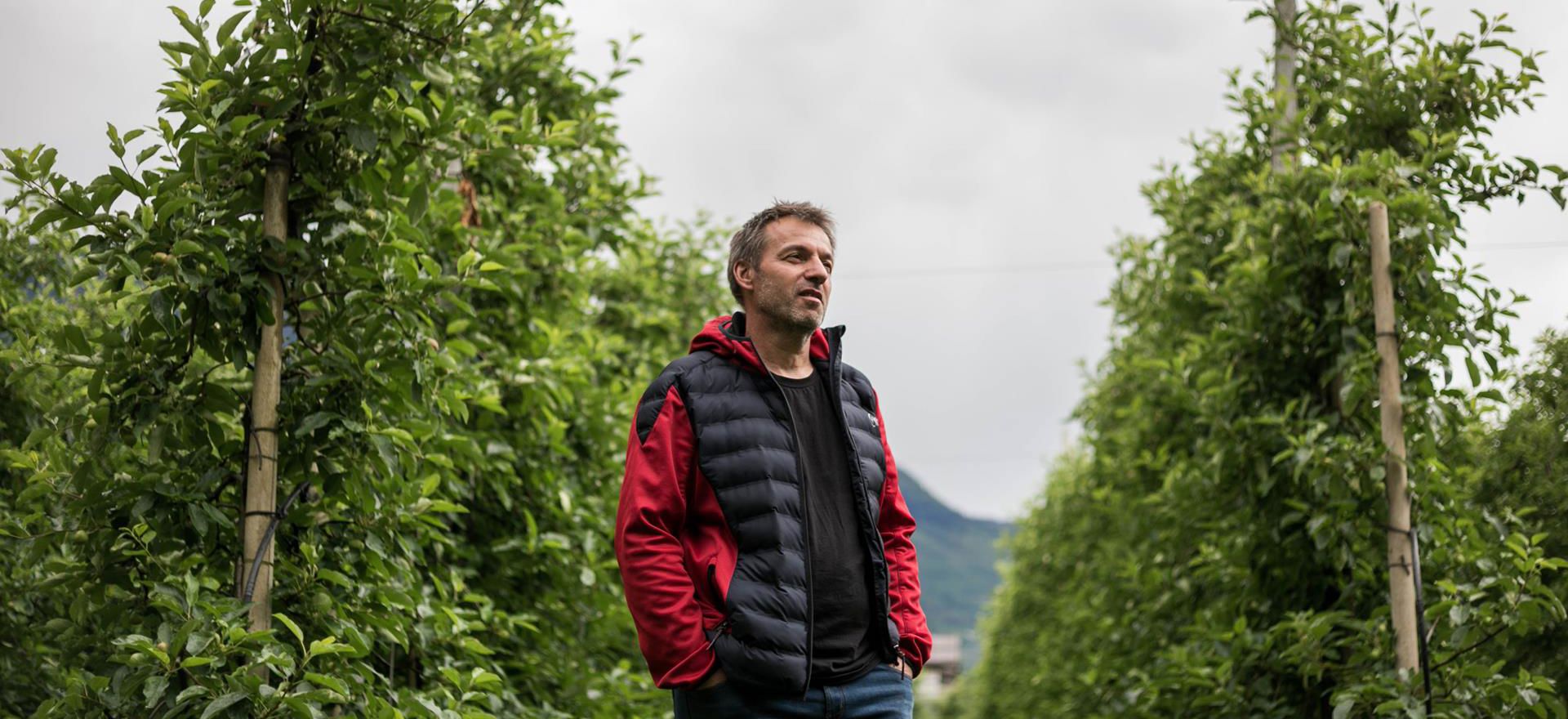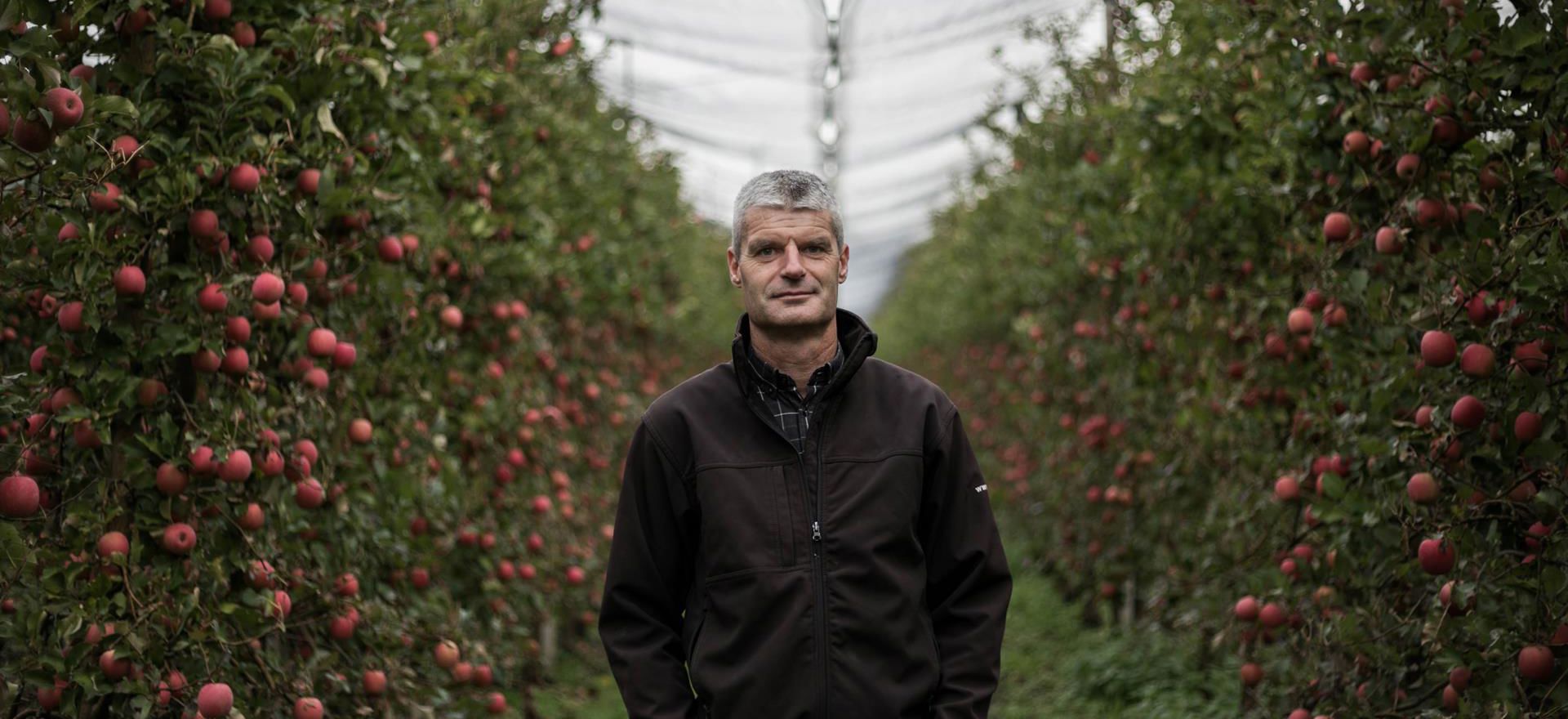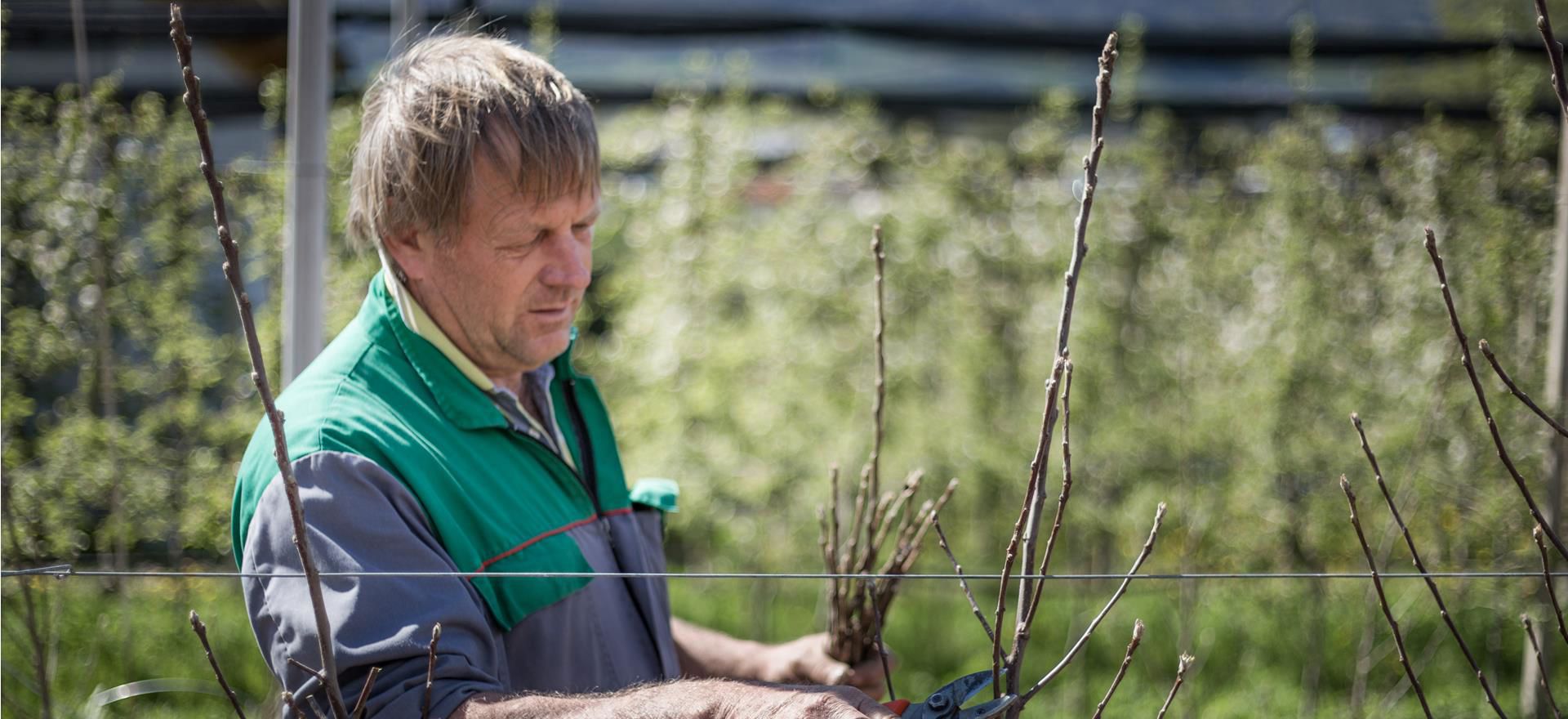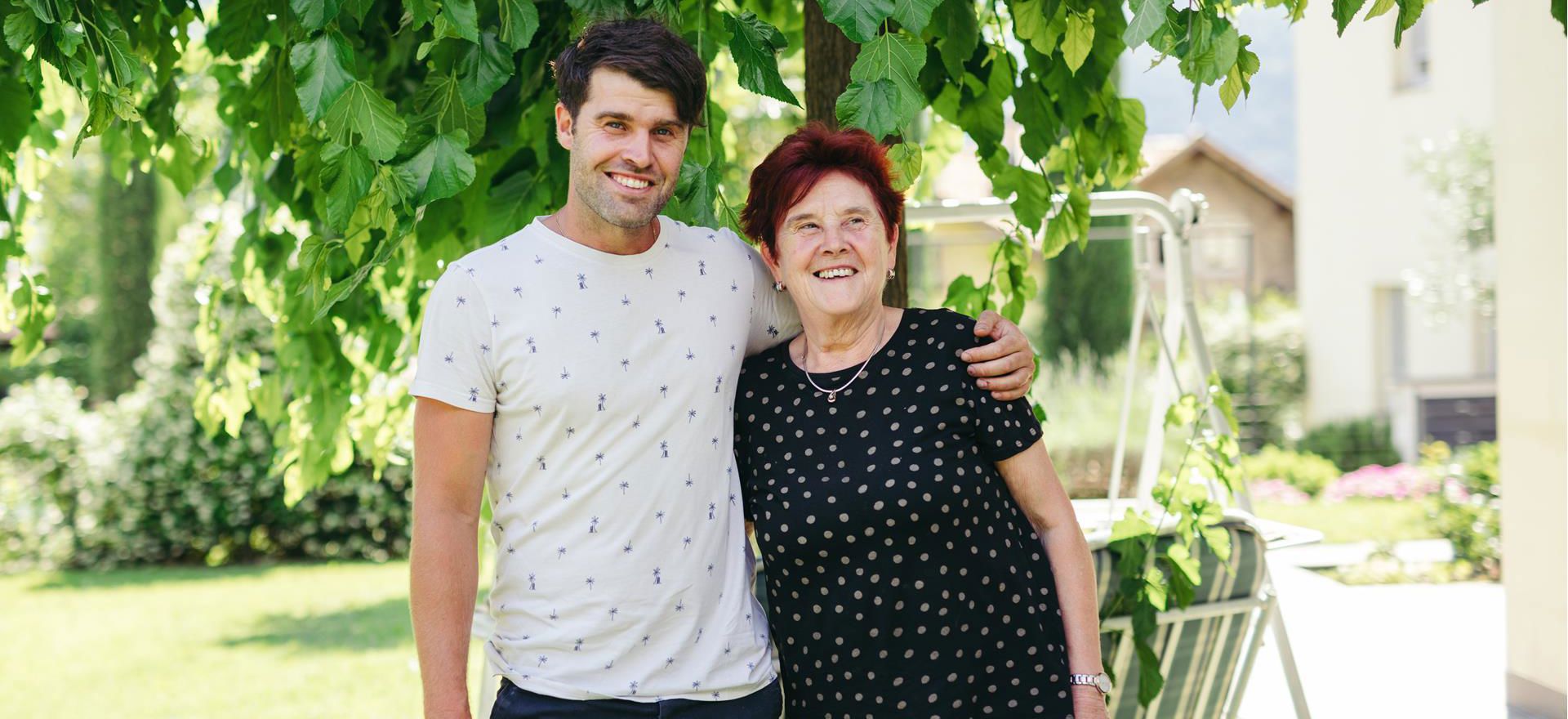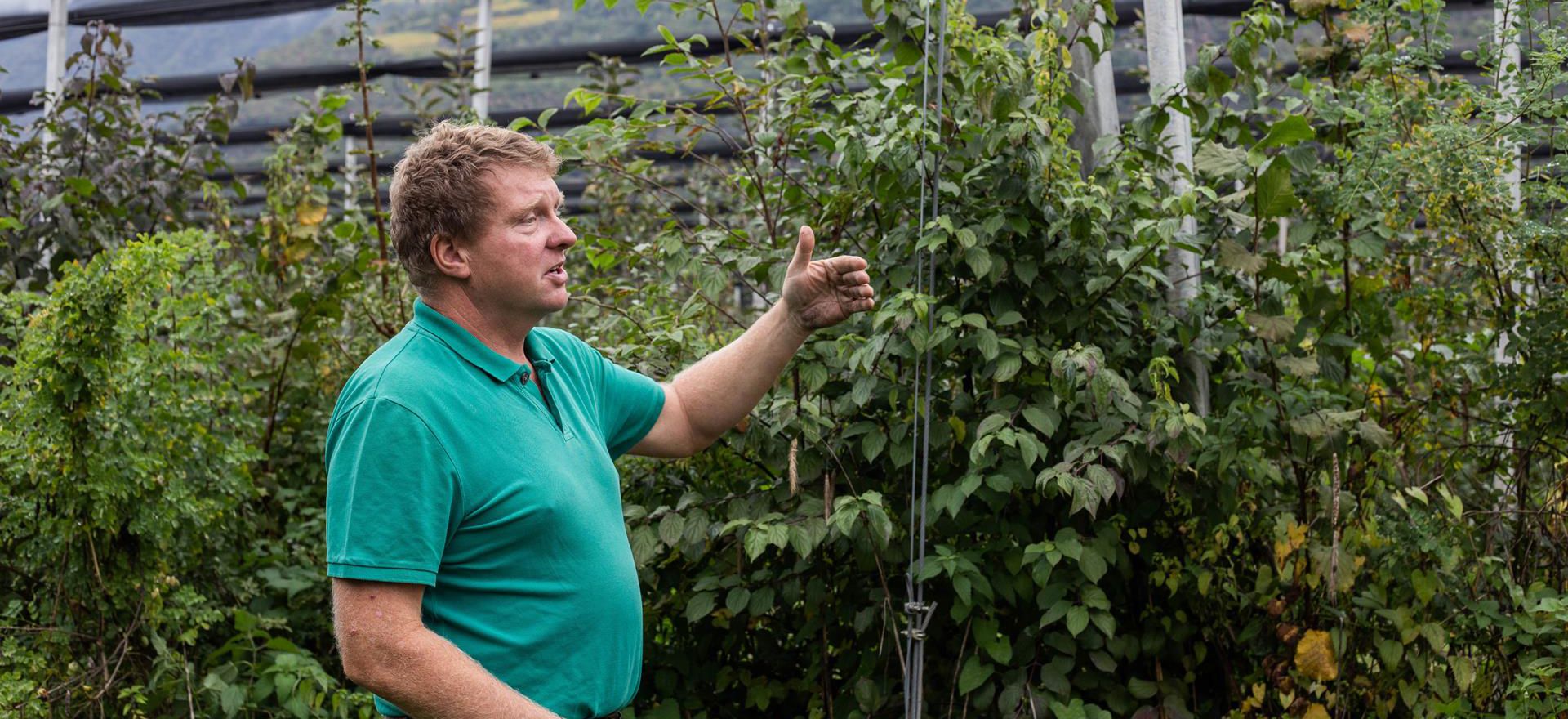Since the sandy soils of his home village Terlan are known for asparagus as well as apples and wine, Martin has been playing with the idea of planting organic asparagus since he took over the farm. The challenge is to harvest the asparagus in spring, when plant protection is most demanding for the apples. To ensure that the quality of the apples does not suffer as a result of his asparagus plans, he hires an employee all year-round. Martin plants the first asparagus and continuously expands the asparagus fields. For ten years he harvests asparagus with his team. After that, Martin makes a crop rotation and puts apple trees in the meadow again, and the soil thanks him.
Martin relies on a colourful mix of apple varieties and harvests from August to the end of November: among others,
Gala,
Topaz,
Natyra®,
Braeburn,
GoldRush® and
Fuji. Per hectare, the organic farmers harvest fewer kilos of apples than before the conversion to organic farming. For Martin, this is not only a disadvantage. He likes to cite the South Tyrolean wineries as an example, showing that quality comes before quantity. This insight makes sense to Martin. Thus, with
Natyra®, he plants an apple variety that yields less but delivers a special taste experience; in the long run, this increases the appreciation for apples. Quality not quantity.








